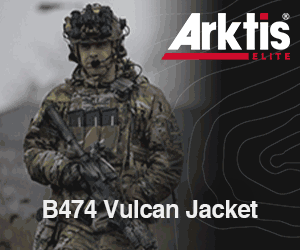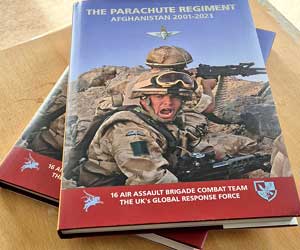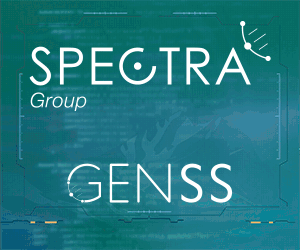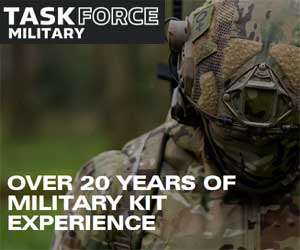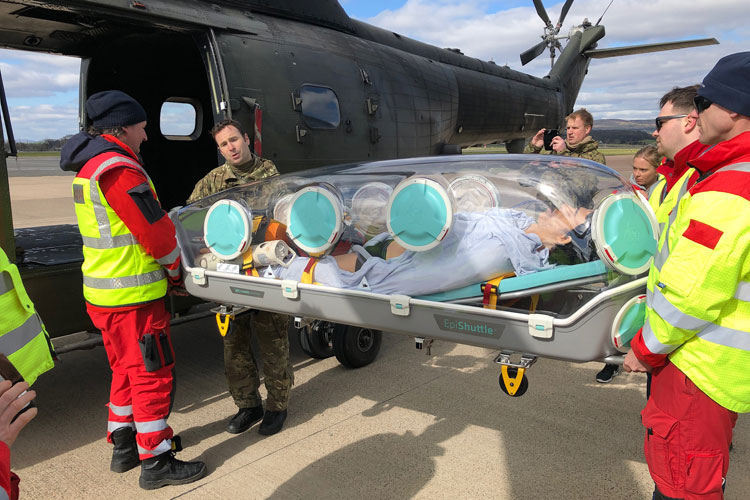
RAF Puma Helicopters have been supporting the Scottish Ambulance Service (SAS) with trials of the EpiShuttle medical isolation and transportation system.
~
RAF News Release, 01 April 2020: RAF Puma helicopters based at Kinloss Barracks in Moray have been supporting the Scottish Ambulance Service with the trials of the EpiShuttle medical isolation and transportation system as part of the Scottish Government’s Coronavirus response.
The Scottish Ambulance Service has trialled the use of the EpiShuttle to enable the safe and swift transportation of patients to emergency care facilities across the country. The RAF Pumas are on standby to assist with air transportation if required and have previously undertaken medical evacuation roles in operational theatres. At critical care team bases in Glasgow and Aberdeen, the Puma crews worked with dozens of personnel from the Scottish Ambulance Service, the Emergency Medical Retrieval Service and NHS Scotland to trial the loading of the EpiShuttle and the associated medical crew and equipment onto a Puma helicopter.
Flight Sergeant Stephen Cassidy, the senior crewman of the Puma detachment in Kinloss, explained: “Ahead of the training, our engineers changed the aircraft to a 6-seat fit from the traditional 12-seat fit; a configuration we haven’t used before. Removing the additional seats allows us to transport the required medical staff to treat the patient and safely accommodate the EpiShuttle and associated medical equipment. It’s similar in size to the NATO stretcher that we’ve transported on numerous operations but it’s much easier to load and secure because of the fixed wheels when taken off the gurney.”
Squadron Leader Johnny Longland, the Puma Detachment Commander, said: “This ground-based training has been essential to help us better support the NHS in Scotland. My crews haven’t conducted medical evacuations with NHS partners before but their vast operational experience will ensure that they can deliver whatever is needed when the time comes. The trial runs were a huge success and mean we can work together seamlessly to provide a life-saving service.”
Pauline Howie, Chief Executive of the Scottish Ambulance Service, said: “The fight against COVID-19 has required the NHS to think differently and to move at pace. By adapting our approach and using this latest available technology, we are taking swift action in the best interests of patients and our hardworking staff – whilst increasing our capacity.
“The introduction of epishuttles will increase the range of options available to us as a Service as we deal with COVID-19 cases, particularly for rural and island communities.
“I’d also like to thank our colleagues at Transport Scotland, Loganair and the RAF who have offered fantastic assistance to us through aircraft and staff. It has been a real team effort and means we have the full range of resources available to us to enable us to react to any situation as we continue to help communities across Scotland in the months ahead.”
~
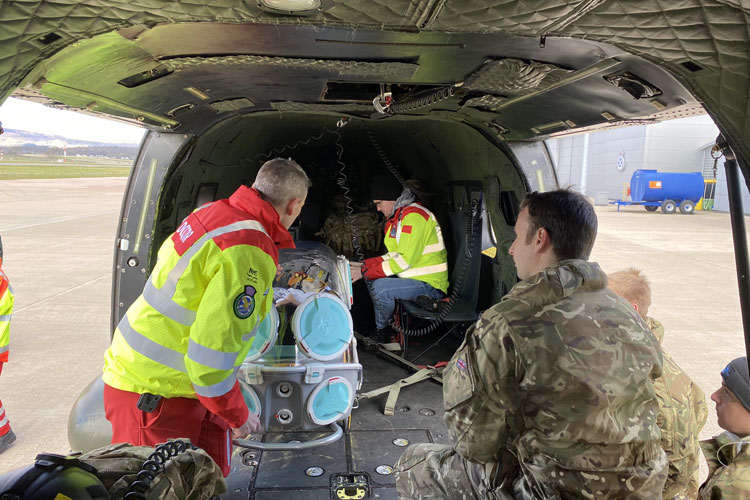
The Puma helicopters are part of the Aviation Task Force COVID Support Force which has helicopters on standby across the UK to support the UK government’s response to Coronavirus. Working with the Army Air Corps Wildcat, RAF Chinook and Royal Navy Merlin, the RAF Puma provides essential medical evacuation capabilities as well as the ability to swiftly deliver essential equipment and personnel to where they are needed across the nation.












